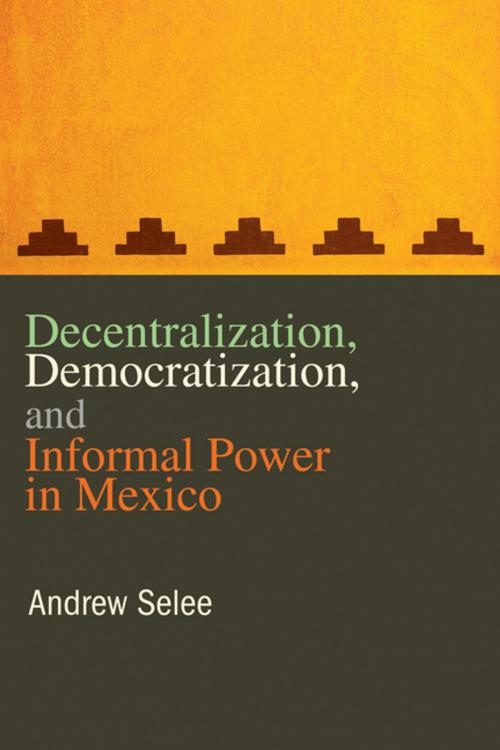Decentralization, Democratization, and Informal Power in Mexico
Nonfiction, Social & Cultural Studies, Political Science, International, Foreign Legal Systems, History, Americas, Mexico, Modern, 20th Century| Author: | Andrew Selee | ISBN: | 9780271075327 |
| Publisher: | Penn State University Press | Publication: | June 21, 2011 |
| Imprint: | Penn State University Press | Language: | English |
| Author: | Andrew Selee |
| ISBN: | 9780271075327 |
| Publisher: | Penn State University Press |
| Publication: | June 21, 2011 |
| Imprint: | Penn State University Press |
| Language: | English |
In the last two decades of the twentieth century, many countries in Latin America freed themselves from the burden of their authoritarian pasts and developed democratic political systems. At the same time, they began a process of shifting many governmental responsibilities from the national to the state and local levels. Much has been written about how decentralization has fostered democratization, but informal power relationships inherited from the past have complicated the ways in which citizens voice their concerns and have undermined the accountability of elected officials. In this book, Andrew Selee seeks to illuminate the complex linkages between informal and formal power by comparing how they worked in three Mexican cities. The process of decentralization is shown to have been intermediated by existing spheres of political influence, which in turn helped determine how much the institution of multiparty democracy in the country could succeed in bringing democracy “closer to home.”
In the last two decades of the twentieth century, many countries in Latin America freed themselves from the burden of their authoritarian pasts and developed democratic political systems. At the same time, they began a process of shifting many governmental responsibilities from the national to the state and local levels. Much has been written about how decentralization has fostered democratization, but informal power relationships inherited from the past have complicated the ways in which citizens voice their concerns and have undermined the accountability of elected officials. In this book, Andrew Selee seeks to illuminate the complex linkages between informal and formal power by comparing how they worked in three Mexican cities. The process of decentralization is shown to have been intermediated by existing spheres of political influence, which in turn helped determine how much the institution of multiparty democracy in the country could succeed in bringing democracy “closer to home.”















